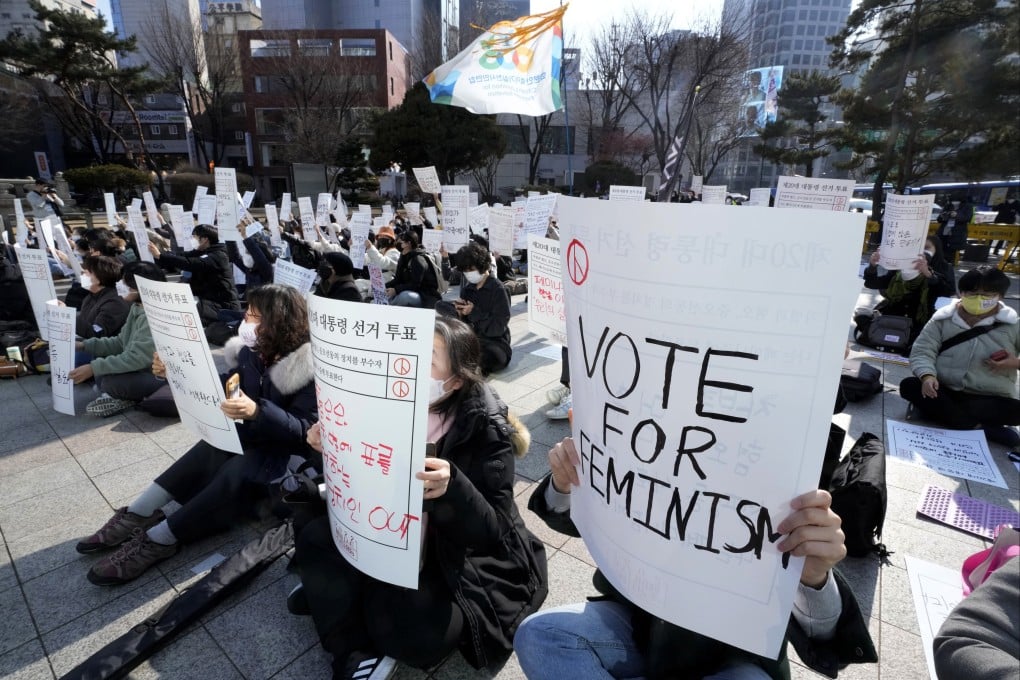Marry a No 2 man? In South Korea, women use presidential preferences to decide who to date
- Popular online posts claim Democratic Party supporters make good boyfriends and husbands, unlike men who favour the conservative People Power Party
- But some antifeminists have embraced the ‘No 2 men’ label – in an election that has been shaped by divisive gender politics

In presidential elections, Korean voters use a numbering system to indicate their candidate of choice. Candidate No 2 on ballot papers for Wednesday’s election is Yoon Suk-yeol of the main conservative opposition People Power Party. Lee Jae-myung, of the ruling Democratic Party, is Candidate No 1.
Which of these front runners gets a person’s vote could decide more than the country’s future, however, as Korean women have also been using voting preferences to assess potential mates.

Despite its economic and technological advances, South Korea remains socially traditional and patriarchal. It has the highest gender wage gap in the OECD club of developed economies and only 3.6 per cent of board members at the country’s conglomerates are women.
Yoon, a 61-year-old former prosecutor, has been accused by his critics of fanning misogynistic sentiments that have coloured the views of many young men in the world’s 10th largest economy, fuelled by soaring housing prices and a lack of jobs.